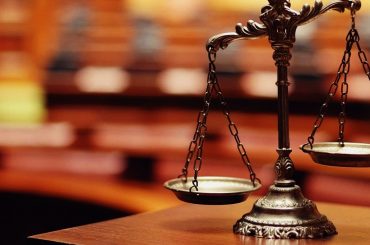Introduction:
“Are you struggling with the unforeseen aftermath of a car accident, specifically grappling with post-concussion syndrome? You’re not alone.” This question immediately addresses a common concern among readers who might be facing similar challenges, drawing them into the article.
Post-concussion syndrome (PCS) is a complex condition that can emerge following a traumatic brain injury, often experienced in car accidents. Unlike a standard concussion, whose symptoms usually recede within weeks, PCS can linger, significantly impacting an individual’s daily life and work. Understanding PCS is not just a medical necessity; it’s a critical component in navigating the often daunting world of car accident settlements.
This article aims to demystify the journey of seeking a settlement for post-concussion syndrome following a car accident. We’ll explore the nuances of PCS, the importance of medical assessments, factors that influence settlement values, and the legal processes involved. Our goal is to provide you with a comprehensive guide, equipping you with the knowledge to navigate this complex path and understand what you can expect from a settlement in such cases.
Understanding Post-Concussion Syndrome
Definition: Post-Concussion Syndrome (PCS) is a complex medical condition that can occur after a person has suffered a concussion. A concussion is typically a mild traumatic brain injury that can happen during impacts to the head, which are common in car accidents. PCS is characterized by the persistence of concussion-like symptoms beyond the typical recovery period.
Symptoms and Duration: The symptoms of PCS can vary widely but often include:
- Persistent headaches
- Dizziness and balance problems
- Fatigue
- Trouble with memory and concentration
- Sleep disturbances
- Irritability and other mood changes
- Sensitivity to light and noise
While symptoms of a standard concussion usually resolve within a few weeks, PCS symptoms can last much longer, often for several months or even years.
Difference from Standard Concussion: The primary difference between PCS and a standard concussion lies in the duration and persistence of symptoms. A regular concussion typically resolves within a matter of weeks without long-term effects. However, in PCS, symptoms not only persist for a much longer period but may also be more debilitating, impacting a person’s ability to function normally in their daily activities.
Relevance in Car Accidents: PCS is particularly relevant in the context of car accident claims for several reasons:
- Frequency: The nature of car accidents often involves head trauma, making concussions and PCS common outcomes.
- Impact on Quality of Life: The prolonged symptoms of PCS can significantly affect a person’s quality of life, including their ability to work, engage in social activities, and perform everyday tasks.
- Medical and Legal Complexity: PCS can be challenging to diagnose and treat, and this complexity extends into the legal realm. Accurately assessing and proving the impact of PCS is crucial in car accident claims to ensure adequate compensation for the injured party.

The Role of Medical Assessment in Car Accident Claims
Immediate and Continuous Assessment: The importance of immediate and continuous medical assessment following a car accident cannot be overstated. Even if you feel fine immediately after the incident, some injuries, particularly those related to the brain like concussions, can have delayed symptoms. An early medical evaluation sets a baseline for your health post-accident and helps in identifying any injuries that may not be immediately apparent.
Continuing medical assessment is equally crucial, especially in cases of post-concussion syndrome (PCS), where symptoms can evolve and persist over time. Regular follow-ups provide a documented track of your recovery process and any ongoing issues, which is vital for both your health and any legal claims.
Role of Medical Records: Medical records play a pivotal role in car accident claims, especially when dealing with conditions like PCS. These records serve as concrete evidence of the injuries sustained and the treatments required. They include initial assessments, diagnostic tests, treatment plans, and notes on progress and setbacks.
In the context of a legal claim, these records are invaluable. They provide a chronological account of your medical journey, offering clear evidence of the accident’s impact on your health. This documentation is crucial in establishing the extent of your injuries and in justifying the need for compensation.
Types of Medical Experts: Various medical experts may be involved in assessing and treating injuries following a car accident. Their expertise is not only vital for your recovery but also plays a significant role in legal proceedings:
- General Practitioners: Often the first point of contact, providing initial assessment and referrals.
- Neurologists: Specialize in the brain and nervous system, crucial for diagnosing and treating PCS.
- Psychiatrists/Psychologists: Address the mental and emotional impacts of the accident, which are significant in PCS cases.
- Physical Therapists: Assist in recovery from physical injuries, providing necessary rehabilitation.
- Occupational Therapists: Evaluate and assist in your ability to return to work or daily activities post-injury.
Factors Influencing the Settlement Value
When seeking a settlement for post-concussion syndrome resulting from a car accident, several key factors come into play. Understanding these elements can provide insight into how settlement values are determined.
1. Severity of Injury:
- The severity of the injury directly impacts the settlement amount. In the case of PCS, this includes the intensity of symptoms like chronic headaches, cognitive difficulties, and emotional disturbances.
- Medical evaluations and reports are crucial in demonstrating the severity. The more severe and well-documented the injury is, the higher the potential settlement.
2. Impact on Quality of Life:
- PCS can significantly disrupt a victim’s daily life. This includes challenges in performing work, engaging in social activities, and even carrying out regular day-to-day tasks.
- The degree to which the quality of life is affected plays a substantial role in the settlement calculation. This is often illustrated through personal accounts, testimonies from family and friends, and professional evaluations.
3. Lost Wages and Medical Expenses:
- Financial losses due to the injury are a major consideration. This encompasses current and future lost wages if the victim is unable to return to work or must shift to a lesser-paying job due to their condition.
- All medical expenses related to treating PCS, including ongoing therapies, medications, and consultations, are accounted for. Detailed and accurate documentation of these expenses is critical.
4. Non-Economic Damages:
- These refer to damages that are not financial but still have a significant impact, such as pain and suffering, emotional distress, and loss of enjoyment in life.
- Evaluating non-economic damages is more subjective and can vary significantly from case to case. Legal professionals often use methods like the multiplier method (multiplying actual damages by a certain number) or per diem approach (assigning a daily rate for pain and suffering) to calculate these damages.
Legal Process for a Concussion Settlement Claim
Navigating the legal process for a concussion settlement claim following a car accident involves several key steps. Understanding this process and the associated timelines is crucial for claimants to manage their expectations and prepare accordingly.
1. Filing a Claim:
- Consultation with a Personal Injury Lawyer: The first step is to consult with a lawyer who specializes in personal injury and concussion cases. This meeting involves discussing the accident details, the injuries sustained, and the impact on your life.
- Gathering Evidence: Your lawyer will collect evidence such as medical records, accident reports, witness statements, and any documentation related to your post-concussion syndrome.
- Filing the Claim: Once enough evidence is gathered, your lawyer will file a claim on your behalf. This is typically done against the insurance company of the party at fault in the car accident.
2. Timelines and Expectations:
- Initial Stages (1-3 Months): The first few months involve consultations, gathering evidence, and filing the claim. During this period, continuous medical treatment and documentation are essential.
- Negotiation Phase (3-6 Months or More): After the claim is filed, your lawyer will enter negotiations with the insurance company. This phase can vary in length depending on the complexity of the case and the willingness of the insurance company to settle.
- Potential Litigation (Can Extend Over a Year): If a settlement cannot be reached during negotiations, your lawyer might advise taking the case to court. This process can significantly extend the timeline, depending on court schedules and the intricacies of the legal proceedings.
- Settlement or Verdict: The final stage is reaching a settlement or receiving a verdict if the case goes to trial. Once a settlement is agreed upon or a verdict is reached, the compensation process will commence.
Case Studies and Precedents
Examining real-life case studies and precedents in post-concussion syndrome (PCS) car accident settlements provides valuable insights into how these claims are handled and what factors can influence the outcomes. Here are a few illustrative examples:
1. High Settlement in Severe PCS Case:
- Case Summary: A claimant suffered severe PCS following a car accident, exhibiting symptoms like chronic headaches, memory loss, and inability to work.
- Outcome: The case resulted in a high settlement, reflecting the significant impact on the claimant’s ability to work and their long-term medical needs.
- Analysis: This case underscores the importance of comprehensive medical documentation and expert testimony to demonstrate the extent of the injury and its long-term effects on the claimant’s life and earnings.
2. Moderate Settlement with Contributory Negligence:
- Case Summary: A claimant with PCS faced a scenario where contributory negligence was a factor – the claimant was partially at fault for the accident.
- Outcome: The settlement was moderate, taking into account the shared fault.
- Analysis: This case highlights the impact of contributory negligence on settlement amounts. It shows the need for a nuanced legal strategy when liability is shared.
3. Low Settlement Due to Lack of Documentation:
- Case Summary: A claimant with mild PCS symptoms failed to maintain consistent medical records and had gaps in treatment.
- Outcome: The settlement was relatively low, reflecting the lack of robust medical evidence to support the claim.
- Analysis: This case demonstrates the critical role of continuous medical documentation in substantiating a claim, especially when symptoms are less severe.
4. Successful Verdict After Trial:
- Case Summary: Negotiations failed to yield a satisfactory settlement for a PCS claimant, leading to a trial.
- Outcome: The jury awarded a significant sum, more than what was initially offered during negotiations.
- Analysis: This case illustrates that while settlement is often the goal, a trial can result in a more favorable outcome, especially with strong evidence and legal representation.
Maximizing Your Settlement – Tips and Strategies
Securing the best possible settlement in a post-concussion syndrome (PCS) car accident claim involves strategic preparation, effective negotiation, and a clear understanding of the claim’s value. Here are key tips and strategies to maximize your settlement:
1. Documentation and Preparation:
- Comprehensive Medical Records: Keep detailed records of all medical treatments, diagnoses, and prognoses related to PCS. This includes doctor’s notes, test results, and medication prescriptions.
- Symptom Diary: Maintain a diary documenting your daily symptoms and how they affect your life. This personal record can be powerful in illustrating the impact of PCS.
- Expense Tracking: Document all expenses related to the injury, including medical bills, travel expenses for medical appointments, and any modifications needed at home or work.
- Evidence of Lost Wages: If you’ve missed work or have been unable to return to your previous job due to PCS, gather evidence such as pay stubs and letters from your employer.
2. Negotiation Skills:
- Understand the Negotiation Process: Be prepared for back-and-forth negotiations. Initial offers are often lower than what can be potentially achieved through negotiation.
- Effective Communication: Clearly articulate the impact of PCS on your life. Use your documentation to support your claims.
- Seek Professional Advice: Consider consulting with or hiring a personal injury lawyer skilled in negotiation, especially for complex cases.
3. Understanding Claim Value:
- Assess All Damages: Ensure you understand the full scope of your claim, including current and future medical expenses, lost wages, and non-economic damages like pain and suffering.
- Use Expert Testimonies: Medical and occupational experts can provide testimony on the long-term impact of PCS, which can be instrumental in determining the claim’s value.
- Be Informed About Similar Cases: Research or consult your lawyer about similar cases and their settlement amounts to get a ballpark figure for your claim.
The Role of Legal Representation
Navigating a post-concussion syndrome (PCS) settlement claim after a car accident can be a complex and daunting process, making experienced legal representation an invaluable asset. Here’s a breakdown of the role and importance of legal representation in these cases:
Importance of Experienced Representation:
- Expertise in Personal Injury Law: An experienced personal injury lawyer brings specialized knowledge of laws and regulations pertinent to PCS cases. This expertise is crucial in navigating the legal nuances of such claims.
- Advocacy and Support: A seasoned lawyer acts as your advocate, representing your best interests throughout the process. They provide both legal support and guidance, helping you understand your rights and options.
- Maximizing Compensation: Lawyers skilled in personal injury cases are adept at accurately assessing the full extent of damages and negotiating effectively to maximize compensation.
Choosing a Lawyer:
- Specialization: Look for a lawyer who specializes in personal injury and specifically in cases involving traumatic brain injuries like PCS. This specialization ensures they are familiar with the complexities of such cases.
- Track Record: Consider their experience and success rate in similar cases. A lawyer with a strong track record in PCS-related claims is likely to understand the best strategies for your case.
- Client Testimonials: Reviews or testimonials from previous clients can provide insights into the lawyer’s approach and effectiveness.
- Communication and Compatibility: Choose a lawyer who communicates clearly and whom you feel comfortable working with. A good lawyer-client relationship is essential for a smooth legal process.
Influence on Settlement Outcome:
- Strategic Approach: Experienced lawyers know how to build a strong case by effectively compiling and presenting evidence. Their strategic approach can significantly influence the outcome of your claim.
- Negotiation Skills: Skilled lawyers are often able to negotiate higher settlements. They understand how to leverage evidence and expert testimony to advocate for the best possible compensation.
- Litigation Preparedness: If negotiations fail, a good lawyer will be prepared to take your case to trial, continuing to fight for your rightful compensation.
Conclusion
In this comprehensive guide, we’ve explored the multifaceted aspects of navigating a post-concussion syndrome settlement following a car accident. Let’s briefly recap the key points:
- Understanding Post-Concussion Syndrome: We delved into what PCS is, its symptoms, how it differs from a standard concussion, and its significance in car accident cases.
- The Role of Medical Assessment: The importance of immediate and ongoing medical assessment was emphasized, highlighting how medical records are crucial in legal claims and the variety of medical experts involved.
- Factors Influencing Settlement Value: We discussed how the severity of injury, impact on quality of life, lost wages, medical expenses, and non-economic damages like pain and suffering play a role in determining the settlement value.
- Legal Process for a Concussion Settlement Claim: The steps involved in filing a claim were outlined, along with what claimants can expect at each stage in terms of timelines and legal procedures.
- Case Studies and Precedents: Real-life examples provided insights into different outcomes and the factors that influenced these results.
- Maximizing Your Settlement: Strategies for thorough documentation, effective negotiation, and understanding the full value of your claim were presented.
- The Role of Legal Representation: The critical importance of experienced legal representation in influencing the outcome of a settlement was highlighted.
Navigating a post-concussion syndrome claim following a car accident can be a daunting and complex process. It’s crucial to arm yourself with knowledge and seek professional legal advice. An experienced personal injury lawyer can provide invaluable assistance in navigating the legal landscape, ensuring that you are fairly compensated for the full extent of your injury and its impacts on your life.
Remember, while this guide offers comprehensive information, every case is unique. Professional legal counsel can offer personalized advice tailored to your specific situation, helping you make informed decisions and pursue the best possible outcome.




